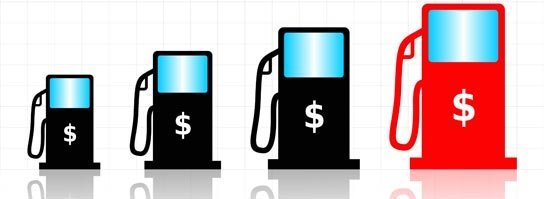Heavy weight of fuel taxes

Without the "hegding losses" recovered at a cost of Rs 3 per liter, the driver of Mauritius could well have paid for a liter of gasoline at the same price as that in force in February 2009, Rs 36.65. This, despite the price of a barrel of oil has reached new peaks in the range of $114 to $119, due to the continuing political crisis and popular uprisings in Libya and other countries of Northern Africa and the Middle East.
"Since mid-November 2010, on each liter of gasoline, the Ministry of Finance collects invariably the sum of Rs 10.80 as Excise Duty, not to mention the additional 30 cents represents the “Maurice Ile Durable Levy” imposed with the new budget.
Rising gasoline prices in the local market also plays for the Ministry of Finance, which receives 37 cents extra on each liter of fuel in terms of value added tax (VAT) Rs 6.69 against Rs 6.32 per liter until Monday.
The burden of fees, "excise duties", "hedging losses" and administrative costs is becoming more consistent on the price of a liter of fuel in gas stations. While a liter of petrol is unloaded at the port of Rs 23.77 (fob), the other component is more consistent, or Rs 27.53.
This amount is broken down as follows: Excise Duty (10% in budget Jugnauth): Rs 10.80, the value added tax: Rs 6.6913, Hedging Losses: Rs 3, Contribution GDR: Re 1.85, Subsidies gas, rice and flour: Re 1.50, STC Fee: 35 cents, wholesaler margin: Re 1.47, margin retailers: Re 1.5140.
Regarding the pricing structure of a liter of oil, the situation is almost similar except that the excise duty is Rs 3.30 per liter and the VAT charged is Rs 5.6739 per liter of oil with fob Rs 24.58 and selling price fixed at Rs 43.50.


